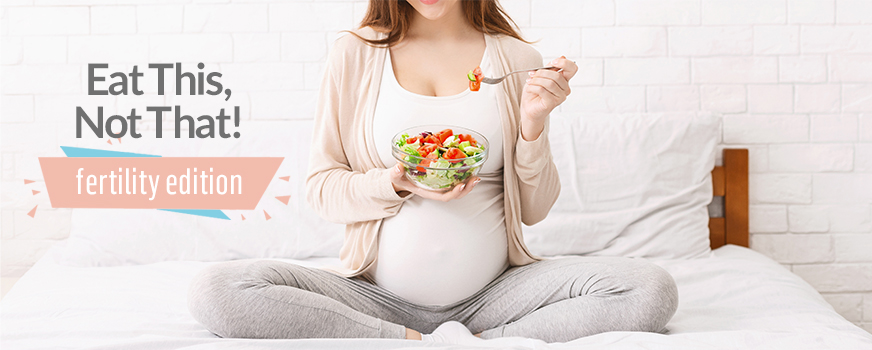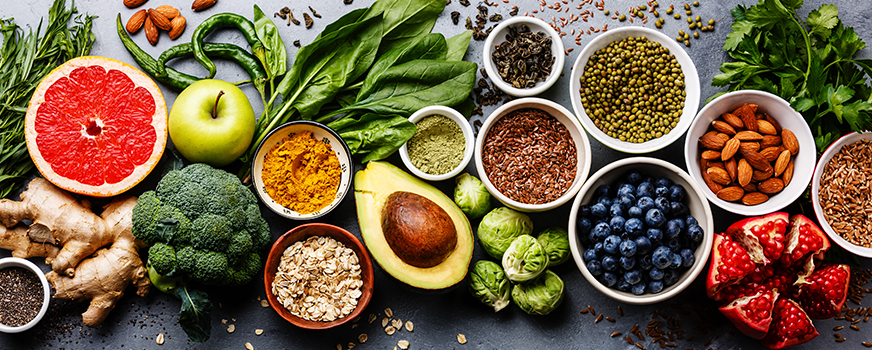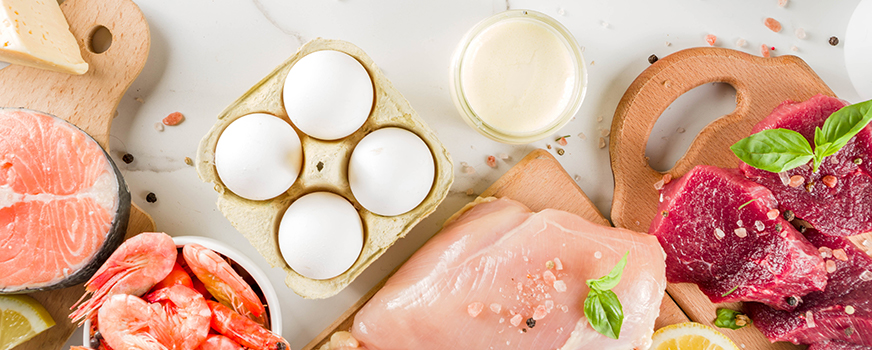
Did you know that your diet plays a large role in your conception journey at every step? Learning what to eat when pregnant is a hot topic, but your diet choices are also important in the conception and postpartum phases. Food helps nourish your body to prepare your it for a healthy pregnancy and to help heal after birth. From fertility to pregnancy to postpartum, learn which foods you should avoid and which foods are better substitutions in your diet.
Fertility Diet
Having an effective fertility diet means having a healthy diet. A proper balance of vitamins and nutrients from the food you consume can benefit your body in increasing fertility and supporting conception.
Recent studies show that fertility diets that include foods high in folic acid, vitamin B12, and vitamin D have a more favorable fertility outcome than those without. Another popular, though potentially less effective, fertility diet is simply following a Mediterranean diet. Fresh fruits, vegetables, whole grains, and seafood provide helpful nutrients and a healthy diet to help support conception. In addition, research has found that women with iron-rich diets have a lower risk for ovulatory infertility. Add iron to your diet via supplements or foods high in iron.
It is also important to point out that a healthy weight plays an important role in conception, and a healthy diet can help achieve that goal. Weight extremes can impact estrogen production, which can throw off regular ovulation and menstrual cycles – or even cause cycles to stop. Speak with your doctor to determine a healthy weight for your fertility journey and what to focus on for a proper fertility diet.
Pregnancy Diet
After making wise decisions with your diet during the conception phase, maintaining a healthy diet into pregnancy is incredibly important. Your pregnancy diet will be the most strict phase of dieting, as there are many things you cannot eat and should avoid. In addition, there are foods to incorporate into meals to keep your pregnancy happy and healthy. Follow the lists below to know what to eat and what not to eat when pregnant.

What to Eat When Pregnant
- Artichokes: Iron and folate
- Avocados: Good fats, fiber, and folate
- Bananas: Potassium
- Basil: Vitamin E, riboflavin, niacin, dietary fiber, vitamin A, vitamin C, vitamin K, vitamin B6, magnesium, phosphorus, potassium, zinc, copper, manganese, iron, and folate
- Broccoli: Folate, calcium, fiber, and antioxidants
- Cheese (not soft): Calcium and protein
- Eggs: Protein and essential amino acids
- Figs: Fiber, calcium, iron, potassium, phosphorus, and magnesium
- Leafy Greens: Folates, ircon, and calcium
- Lean Meat: Iron and protein
- Lentils: Protein, fiber, and folate
- Molasses: Magnesium, manganese, and vitamin B6
- Nonfat Milk: Calcium
- Nuts: Unsaturated fat
- Oats: Fiber, B vitamins, iron, and fiber
- Pumpkin Seeds: Protein, sodium, potassium, phosphorus, and calcium
- Red Bell Peppers: Vitamin C
- Soy: Protein
- Sweet Potatoes: Vitamin A
- Yogurt: Calcium and probiotics

What Not to Eat When Pregnant
- Soft Cheese: Listeria bacteria
- Raw Fish: Various parasites and bacteria
- Undercooked Meat: Toxoplasma bacteria
- Fresh Juice: Salmonella bacteria and E. coli
- Raw Eggs: Salmonella bacteria
- Fish with Mercury: Methylmercury
- Deli Meats: Listeria bacteria
- Unwashed Produce: Toxoplasma and listeria bacteria
- Raw Sprouts: Various bacteria
- Locally Caught Fish: Industrial chemicals
- Unpasteurized Milk: Listeria bacteria
As for what not to drink when pregnant, many debate caffeine consumption. Studies show that a reduced daily intake is safe for pregnant women, up to 200mg of caffeine a day, or about 12oz of coffee. Unlike caffeine, there is no known safe period for alcohol consumption during pregnancy. Alcohol can cause complications with physical and mental development and even cause miscarriage and stillbirth.
Postpartum Diet
Your postpartum diet is less strict than your fertility or pregnancy diets, but is just as important. The main focus for this phase in your journey is to supply your body with the nutrients it needs to heal and to support your baby after birth. Whole foods such as grains, fruits, vegetables, and unprocessed meats give your body a healthy foundation. Also look to incorporate essential fatty acids (especially omega-3 fatty acids), as they can help reduce inflammation, improve your immune system, and help regulate hormone imbalances.
From conception to postpartum, paying attention to your diet is imperative. If you have any questions about how to establish a proper fertility diet, schedule an appointment with your fertility specialist to discuss the healthiest options for you. The health of both you and your child starts from within.



